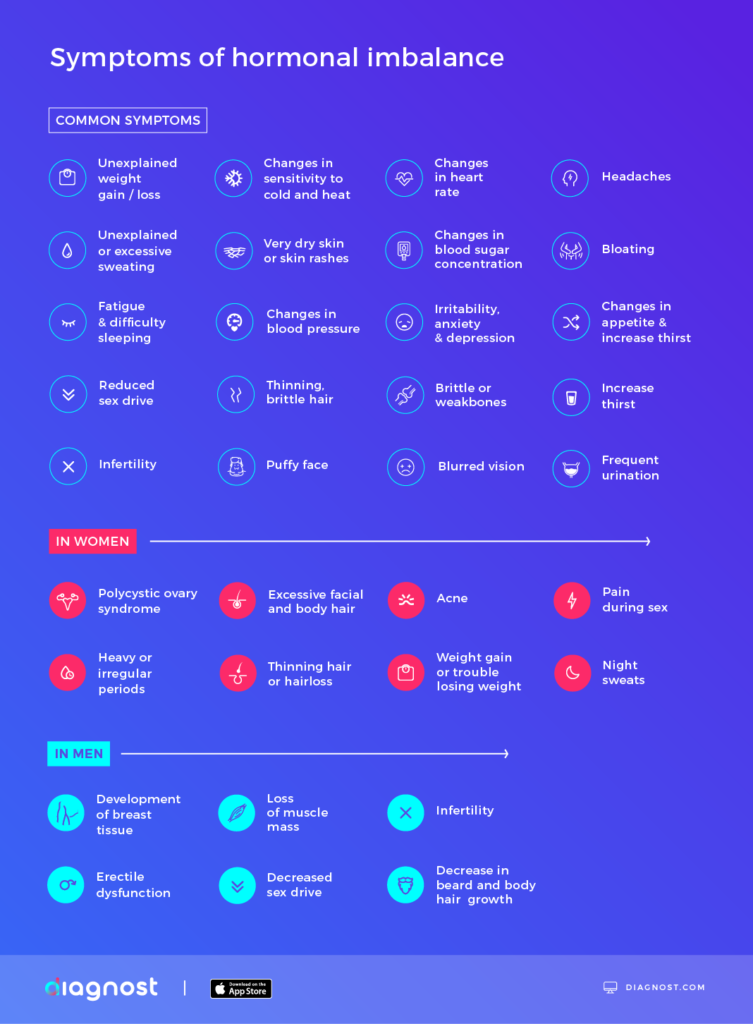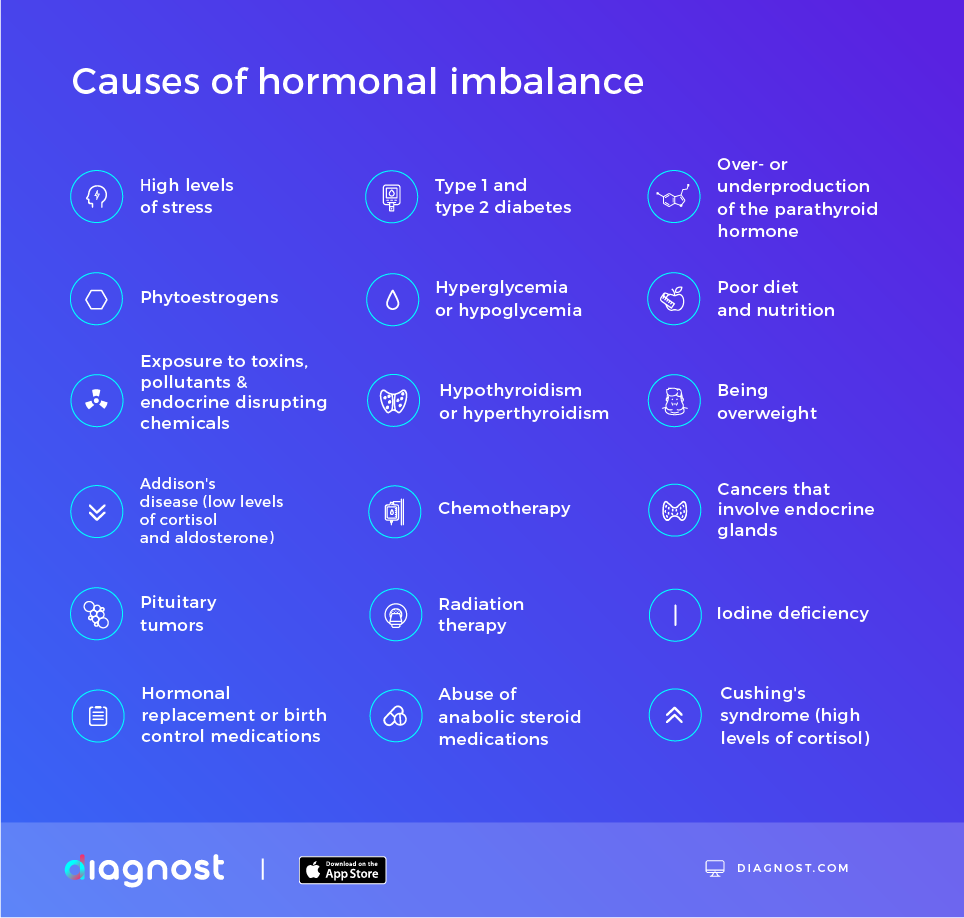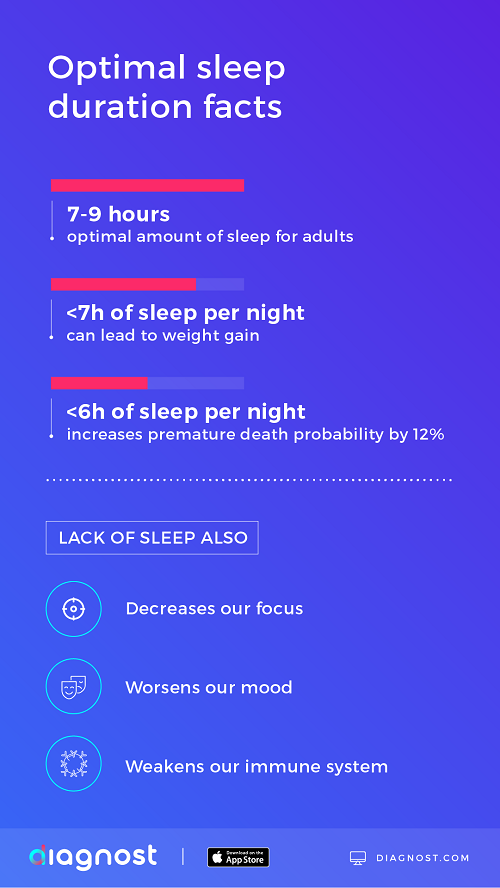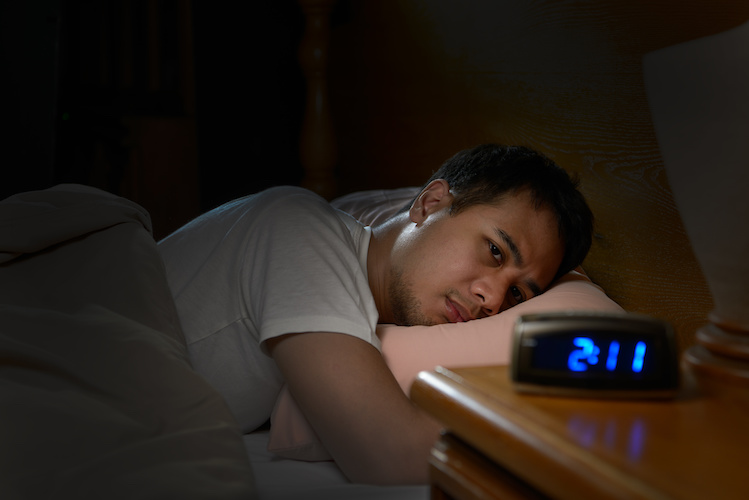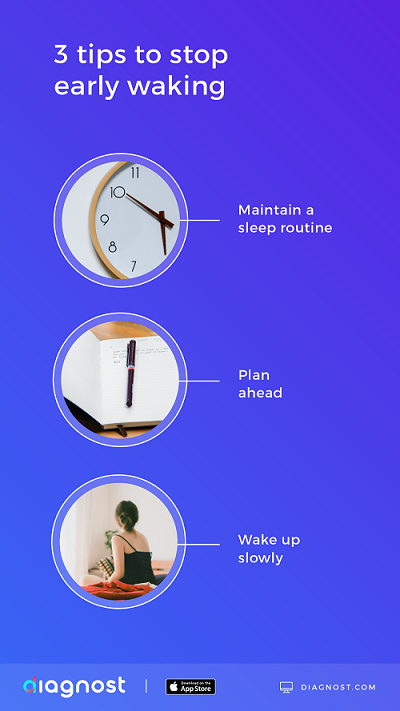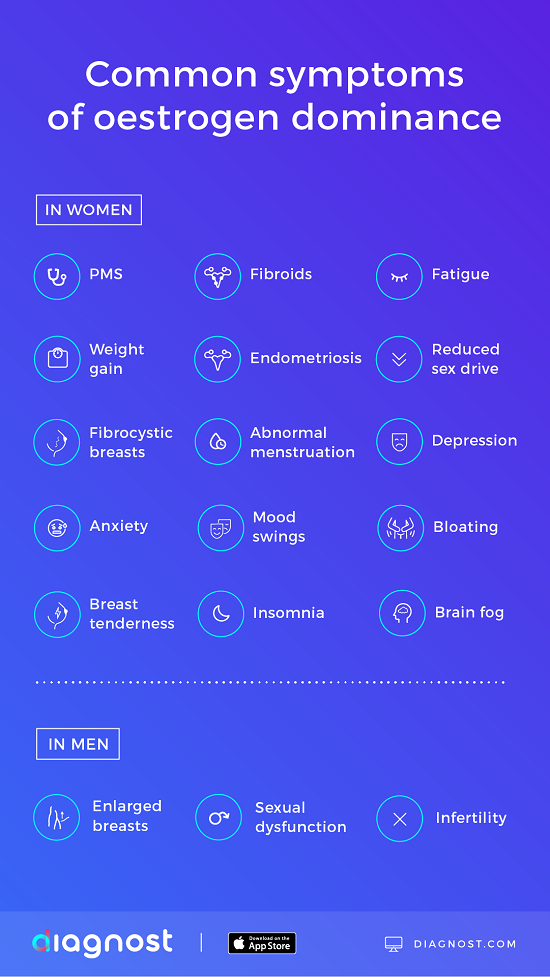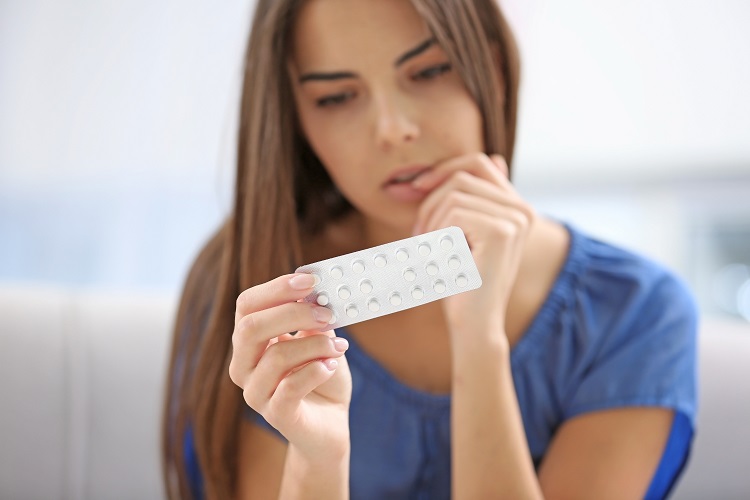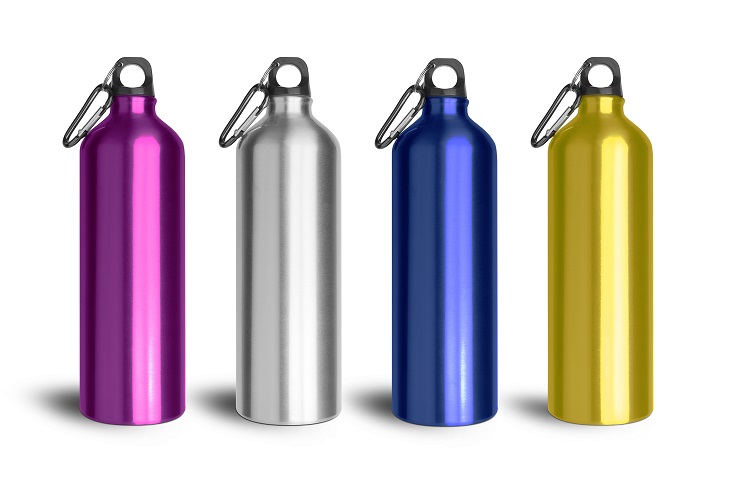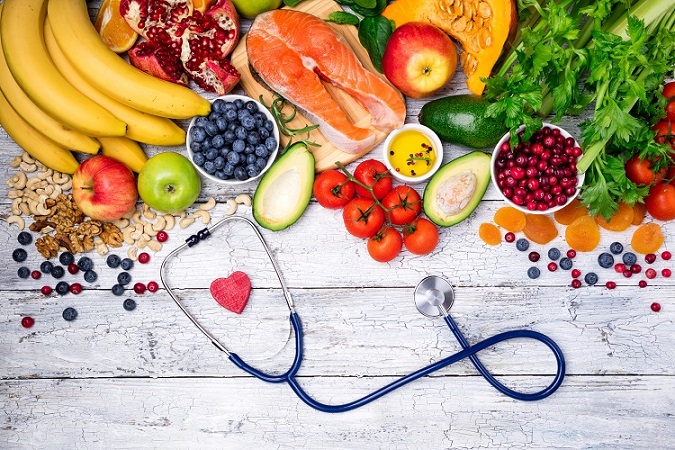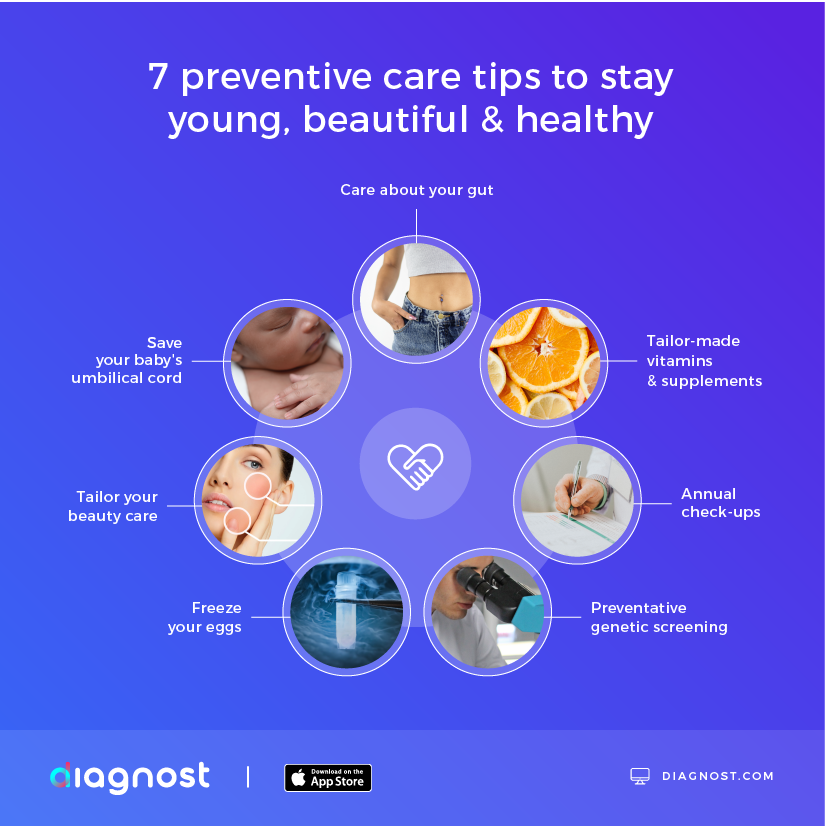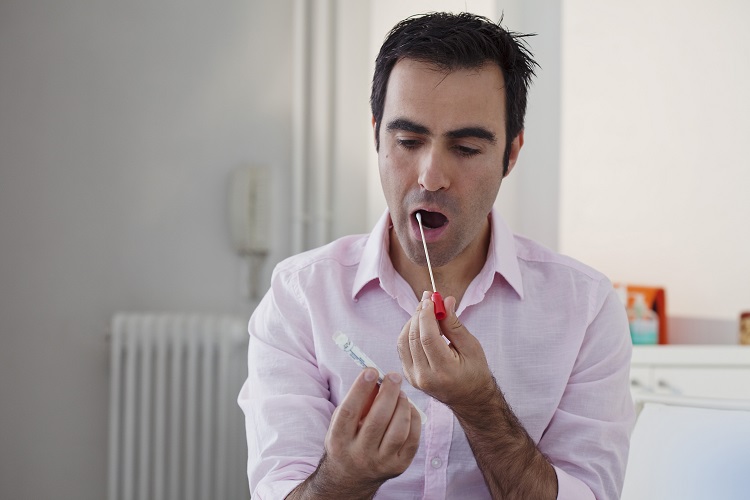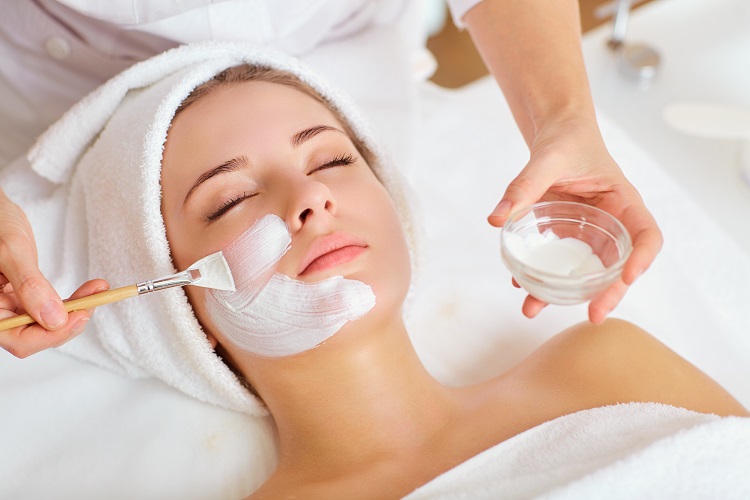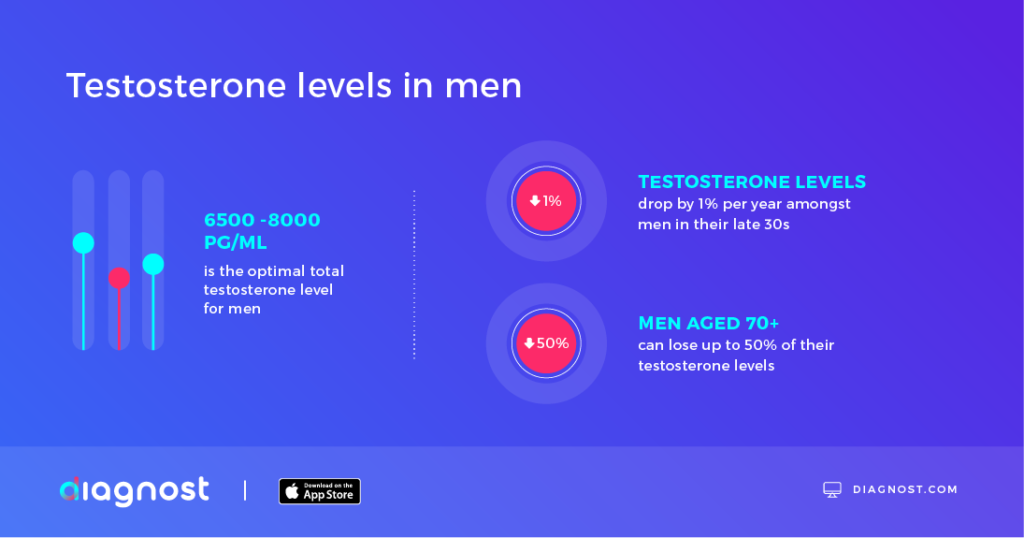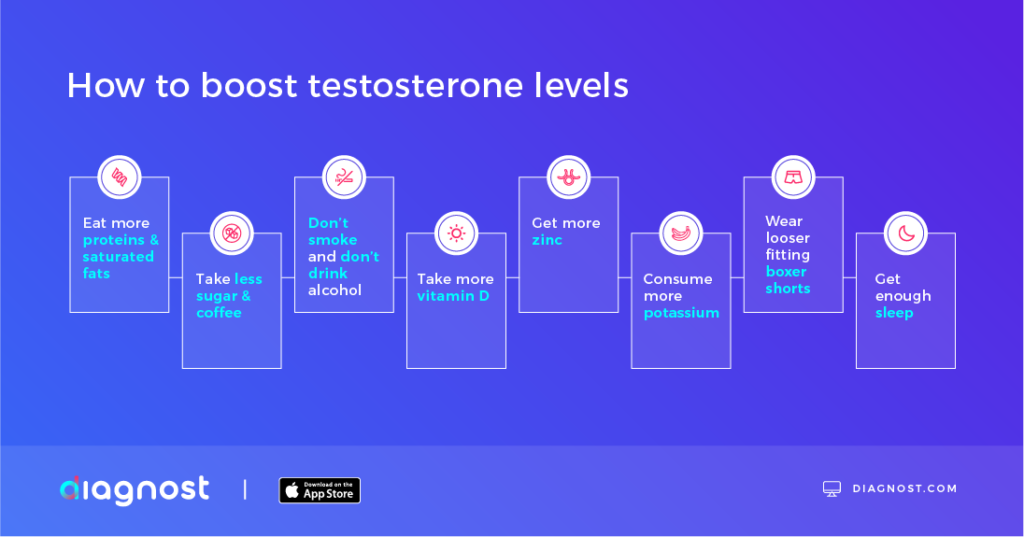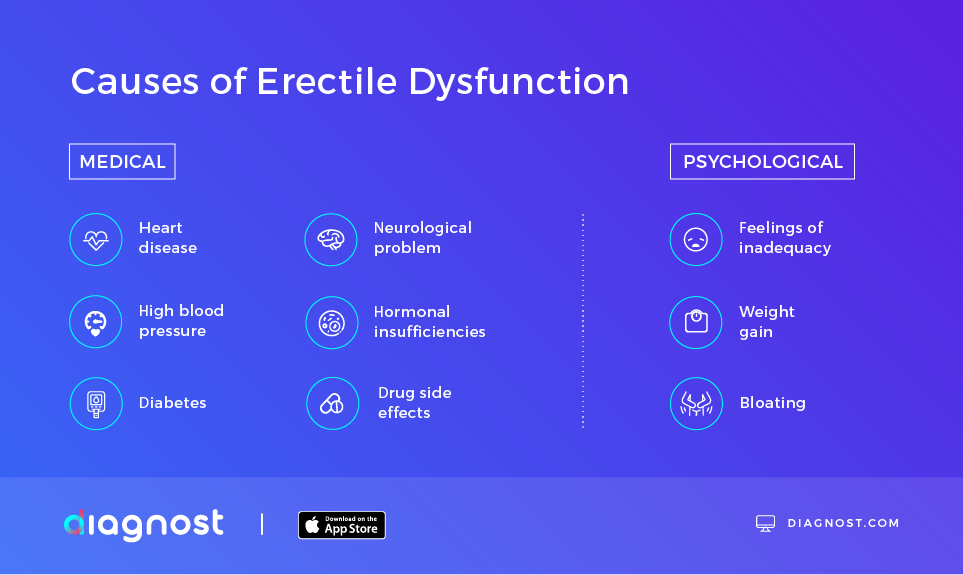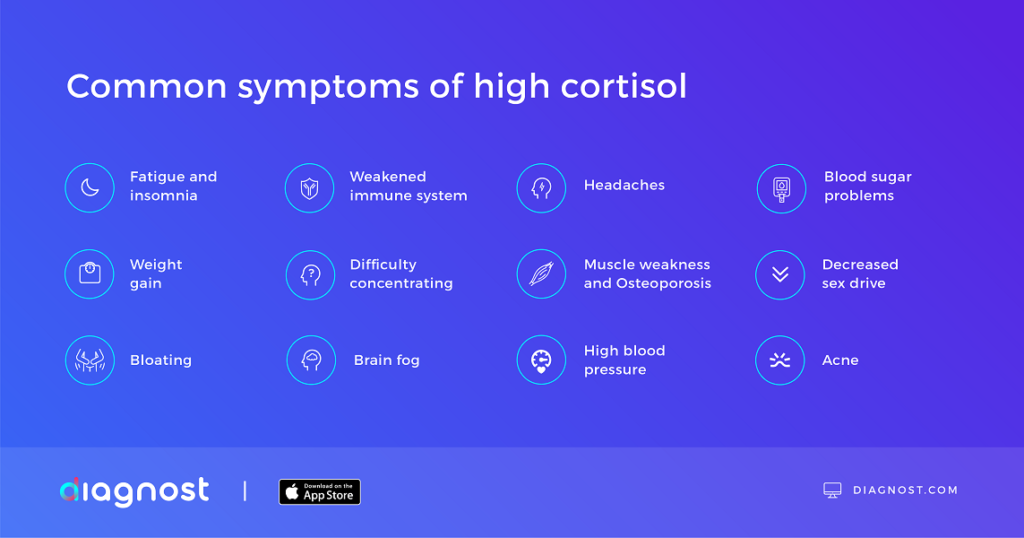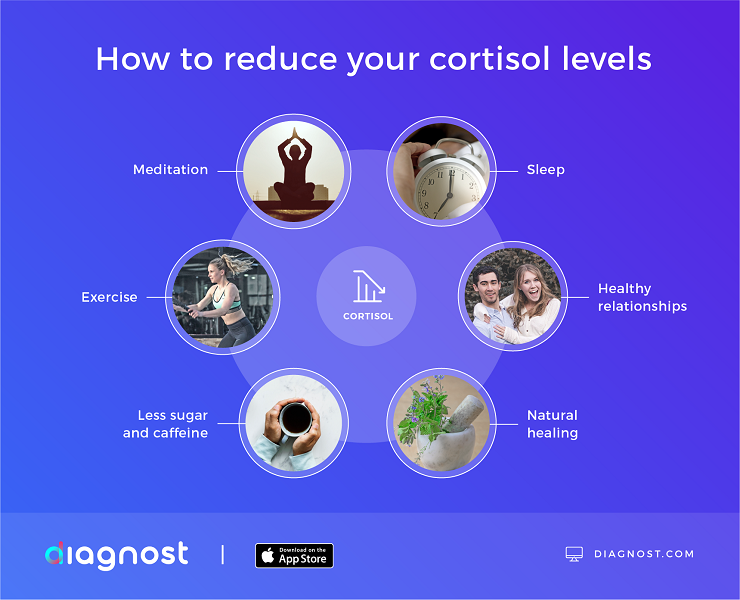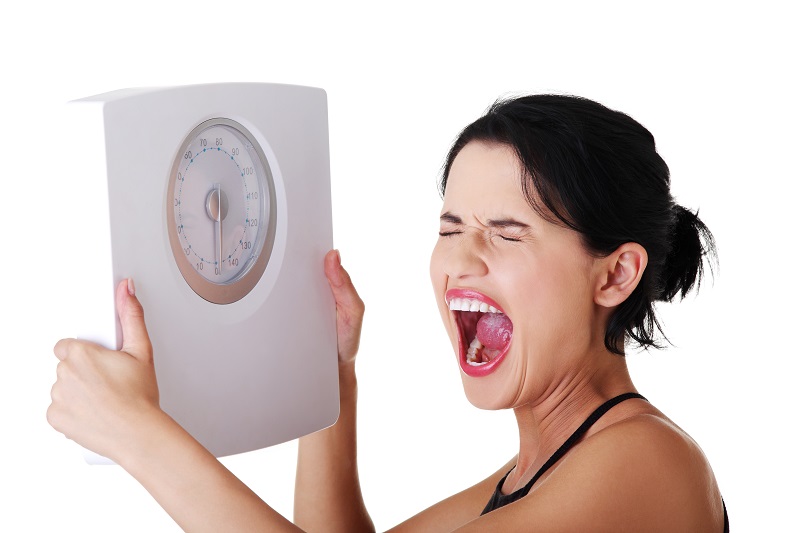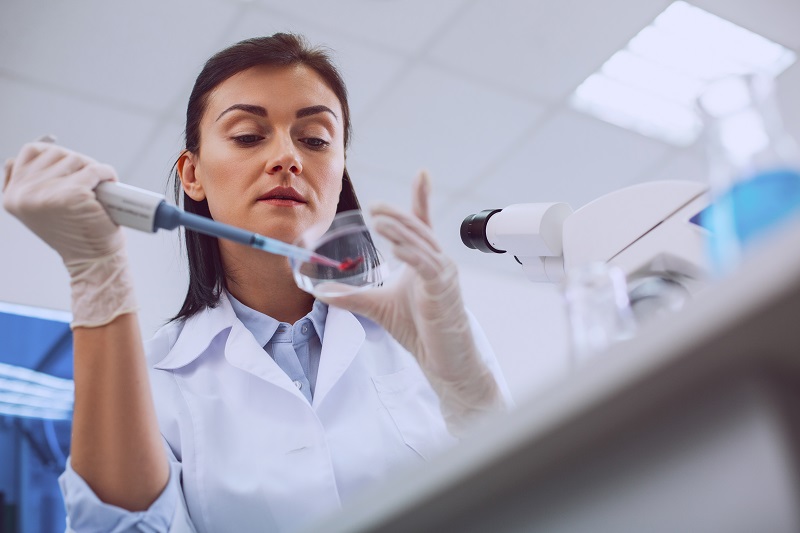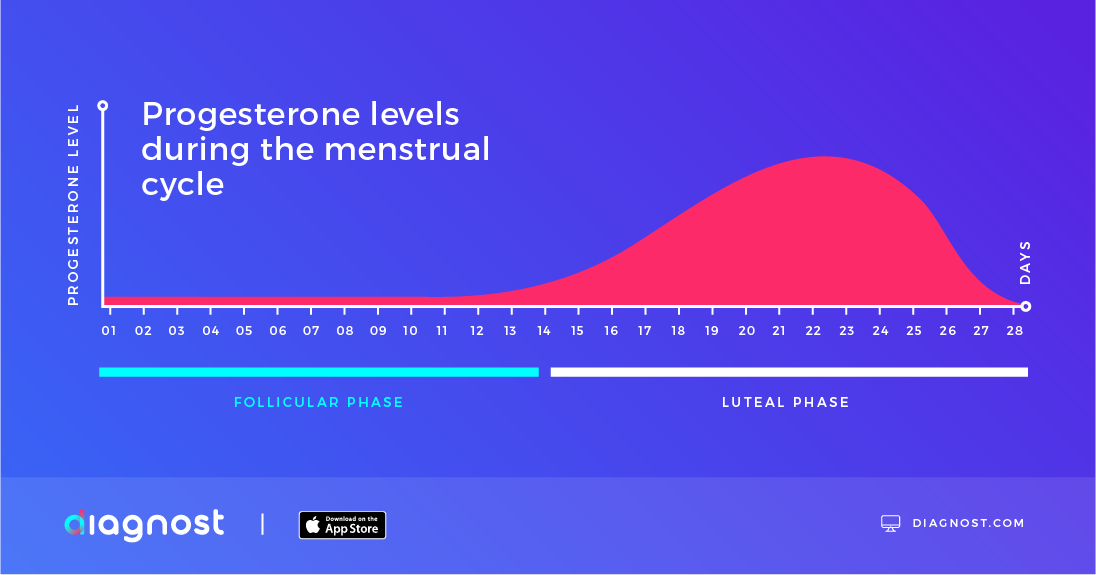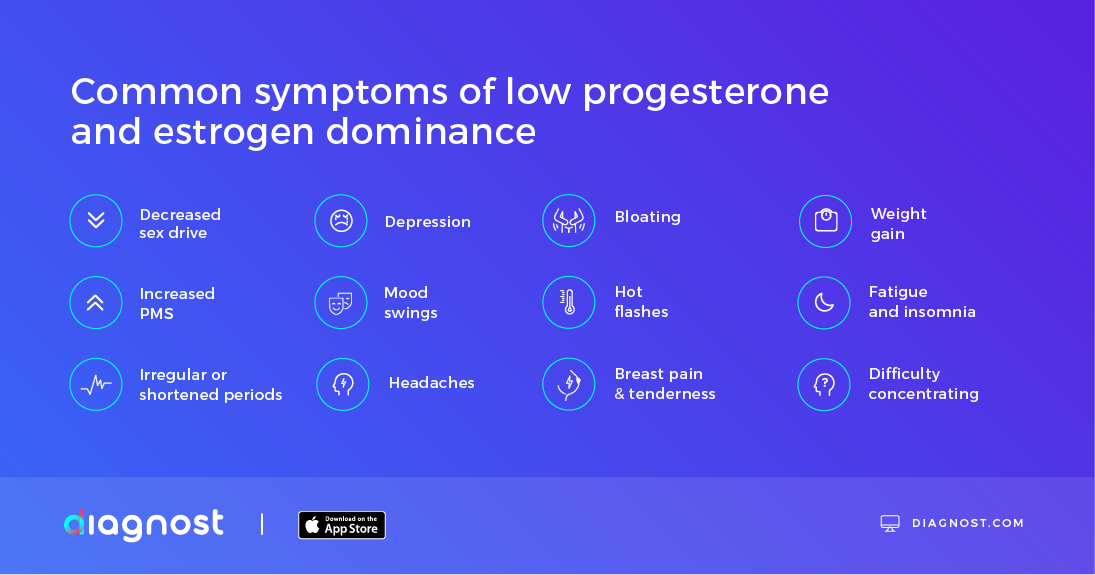Testosterone Replacement Therapy (TRT) is a medical treatment that involves putting exogenous testosterone (or ‘T’) into the bloodstream to: prevent low T, and to tackle the reduction of male testosterone levels that are caused by ageing.
What is andropause?

Andropause — or “male menopause” — is a condition that is associated with the decrease of testosterone in men as they age. It is unlike the female menopause, as symptoms are more gradual, however it is associated with a host of negative symptoms. In comparison to “Low T”, which refers to low testosterone levels in men of any age, andropause is a natural drop in testosterone as part of the ageing process.
What are the symptoms of low testosterone?
Testosterone is often called the ‘male sex hormone’ and has a positive effect on muscle mass, libido, sexual performance, and mood. While many of the symptoms of lower testosterone levels or low-T are common among older men over the age of fifty, some men experience them when they are younger. Many of the symptoms associated with low-T can also be caused by stress, diet, and lifestyle – erectile dysfunction is one such example. If you have experienced any or all of the symptoms below, make sure to get your testosterone levels checked to see if lower than average testosterone levels or low-T is the cause.
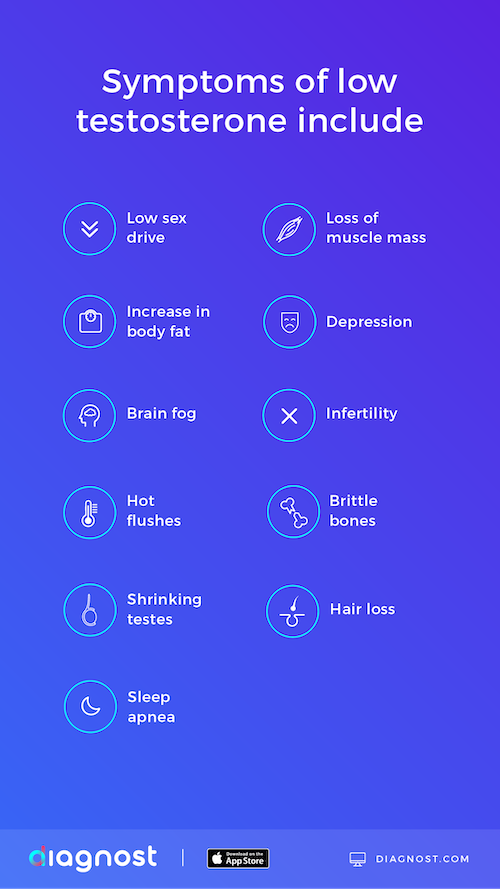
Symptoms of low testosterone include:
- Low sex drive
- Loss of muscle mass
- Increase in body fat
- Depression
- Brain fog
- Infertility
- Hot flushes
- Brittle bones
- Shrinking testes
- Hair loss
- Sleep apnea
What causes testosterone levels to decrease?
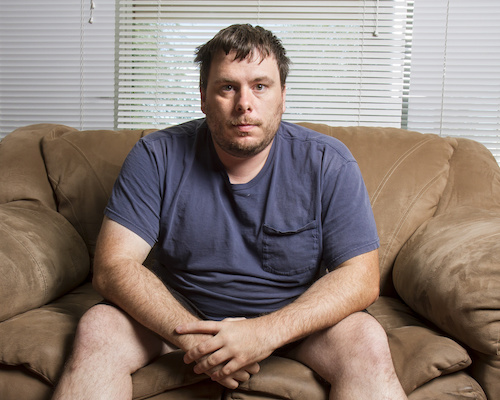
Age
Your body naturally produces less testosterone as you age as part of a natural process that starts 10-20 years after puberty. Your testes and pituitary gland (the two main organs associated with testosterone production) start to produce less testosterone and associated hormones. Research has shown that levels of testosterone in men fall up to 2% annually after the age of 30.
Primary hypogonadism
Primary hypogonadism is a condition where the testes do not produce enough testosterone. In addition to ageing, this condition can be caused by:
- Testicular damage/trauma
- Radiation / Chemotherapy used when treating cancer
- Castration
- Klinefelter syndrome
Secondary hypogonadism
Secondary hypogonadism is caused by issues that originate in the brain, as opposed to the body, leading to lower than normal levels of testosterone in men. Secondary causes include but are not limited to:
- Pituitary tumors or diseases
- Traumatic brain injury
- Injury to the testicles
- Radiation / Chemotherapy used when treating cancer
- Other chronic diseases like liver or kidney disease
- Obesity
- Nutritional deficiencies
Conditions including obesity, diabetes, and hypertension also heighten your risk of having low testosterone or low-T. However, sometimes the cause of low-T is hard to find. Either way, studies are showing that testosterone levels in men have been declining for decades, especially in the Global North, and we are now seeing, therefore, an increase in the use of TRT.
How does TRT help?
TRT has traditionally been used to treat men who have low-T as part of a medical condition. However, with recent medical reports noting a decline in testosterone levels in men living in some parts of the Global North over the last century, it is perhaps no surprise that the use of TRT in countries like the USA is on the rise, now becoming increasingly popular for non-medical uses, such as:
- improving sexual performance
- raising energy levels
- building muscle mass
Indeed, there was a 400% increase in prescriptions of testosterone in the USA between 2011 and 2016. However, in the UK this treatment is less common: it is only provided on the NHS in very extreme cases.
The BBC did a deep dive into the pros and cons of TRT. As part of their research they interviewed Dr Jeffry Life a Vegas-based doctor who shocked the world with how he transformed his body. He claims that he went from having a pot belly at the age of 50 to having the muscles of a bodybuilder at 70.
Dr Life injects himself every day with testosterone, calibrating his testosterone levels to be those of a 35-year-old. He believes that in doing this, he has found a way to wind back the clock.
The positive symptoms of injecting exogenous ‘T’ include:
- Anti-ageing
- Increased muscle mass
- Reduced body fat
- Increased libido
That said, there are many risk factors associated with TRT and it is important to consult your doctor. As TRT is a relatively new treatment option, we do not yet know the long term side effects of using exogenous testosterone. Potential risks include:
- Decreased thyroid function
- Shrinking testes (as they stop producing testosterone because it is being supplied exogenously)
- Cholesterol (high doses of testosterone can reduce HDL “good” cholesterol)
- Low sperm count
- Some studies show potential increased risk of prostate cancer, but more recent reports suggest the opposite, showing TRT to actively help to reduce the risk of this cancer.
If you are already on TRT, Diagnost’s home testing kits allow you to check your cell count, thyroid function, cholesterol levels and more to make sure that you are not experiencing any of the negative side effects of TRT.
The above risks are heightened if you are injecting higher doses of testosterone; caution is, therefore, advised.
How is TRT taken?
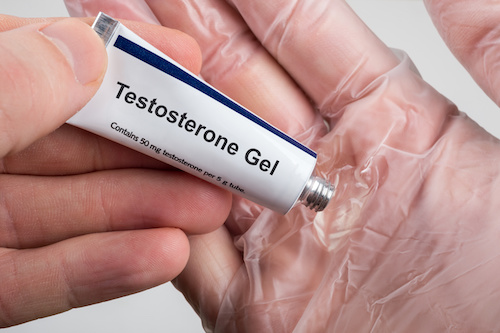
Testosterone can be taken in many forms. There are testosterone patches, creams, and gels that allow T to be absorbed through the skin. Oral medications (i.e. pills) exist, as well as a form of TRT that involves rubbing testosterone on your gums twice a day. Injecting T puts it directly into your bloodstream and is often the form chosen by athletes.
You should decide which form of TRT to take according to your medical needs, personal preferences, and lifestyle. If you are someone who regularly forgets to take daily pills, you might want to consider going the injection route instead. If you are scared of needles, you might want to try creams or gels, and so on.
How can I get a prescription?
Talk to your GP
If you are concerned you have lower than normal testosterone levels, your GP should be the first port of call. TRT prescriptions on the NHS are very rare and only considered in extreme cases. However, your GP will be able to talk through your symptoms, recommend lifestyle and diet changes that may alleviate symptoms, and refer you for hormone testing and more specialised care in order to get to the root of the problem.
The Endocrinologist
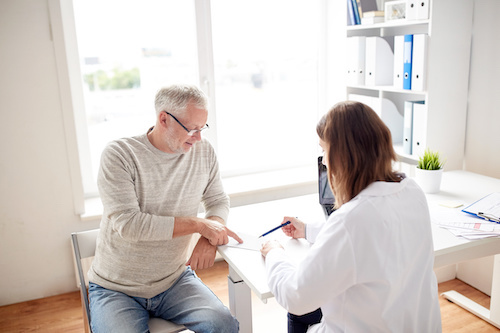
An endocrinologist is a doctor who specializes in hormones and will be able to give you a more in-depth analysis of your hormone levels and potential treatment options. While an endocrinologist will have a more explicit focus on your testosterone levels than your GP, they may still deny you TRT unless your testosterone levels are exceptionally low. Endocrinologist consultations are free on the NHS but you need a GP referral to access them.
Going Private
Private treatment is the main way to access TRT in the UK, especially for men whose testosterone levels are not critically low.
While going private does not guarantee treatment, it does greatly increase your chances. Private healthcare follows more of a consumer/provider model than public sector health, meaning doctors are more likely to give you the treatment you desire.
Visiting a men’s health clinic on Harley Street can cost anywhere between £350-£700 for an initial consultation. While a private GP may be cheaper (between £50-£100), what you save on the consultation you may end up paying for in appointments because they are less specialized so you may have to see them more. The rule of thumb (and this doesn’t just apply to TRT) is that the more you pay, the more likely you are to get what you want.
Third Party Medical Facilitators are the middle range option and many TRT advocates recommend them.
How much does TRT itself cost?
What type of private doctor you are seeing and how much they charge is a price variable to consider at the start of your TRT journey. Once you’re on the treatment, the price of TRT still varies greatly due to a range of factors. These include:
- Where you live
- The type of TRT
- The amount of T you’re taking
- Current medical marketing trends (i.e. if the type of testosterone you are taking has a generic version)
TRT is less common in the UK, meaning that there is less incentive for pharmaceutical companies to develop generic versions. This means that the treatment is more expensive in the UK. You can expect to pay anything from £100 to £1,000 per month. Another thing to consider is that once you start TRT it is a life-long treatment that you will not be able to halt without severe medical risks. This is because your body stops producing natural testosterone once you go on TRT.
Conclusion
While TRT has many benefits, there are also grave risks. Whether you are considering TRT, or are already on it, it is really important to know what is actually going on inside your body by having regular blood checks and thinking preventatively about your health. TRT is optional: taking your health seriously is not!






